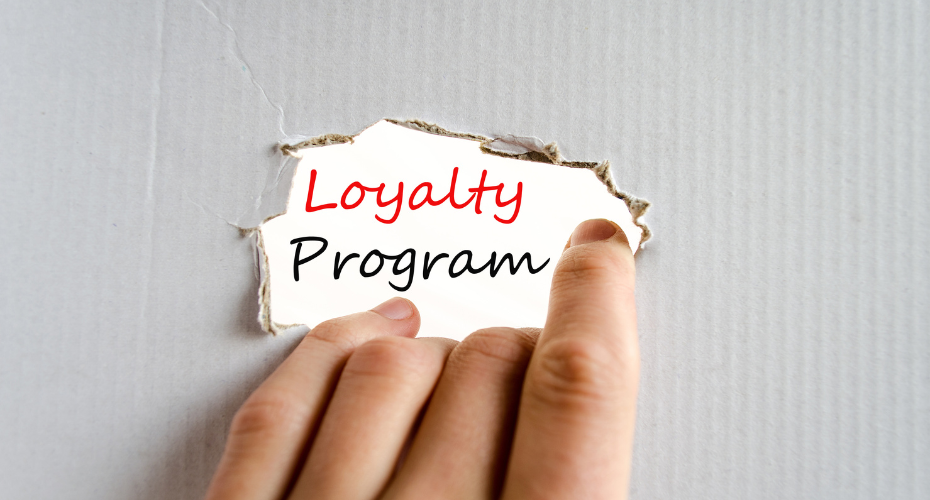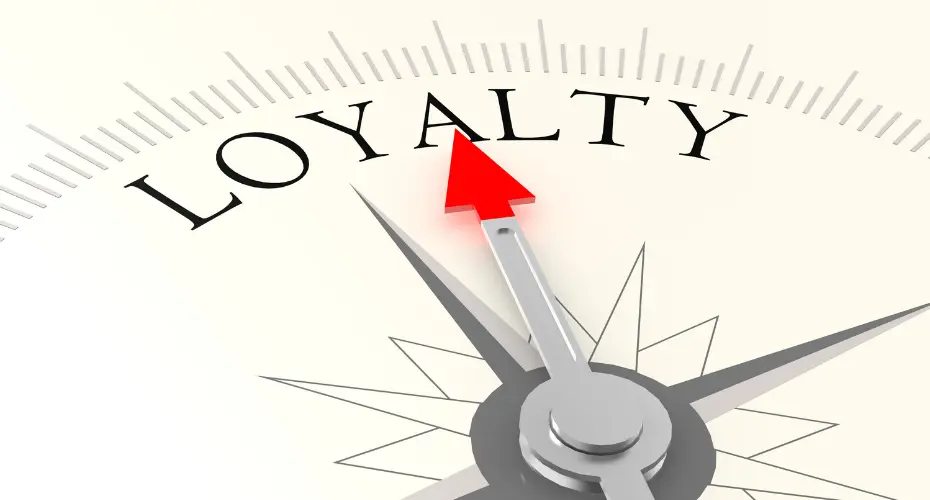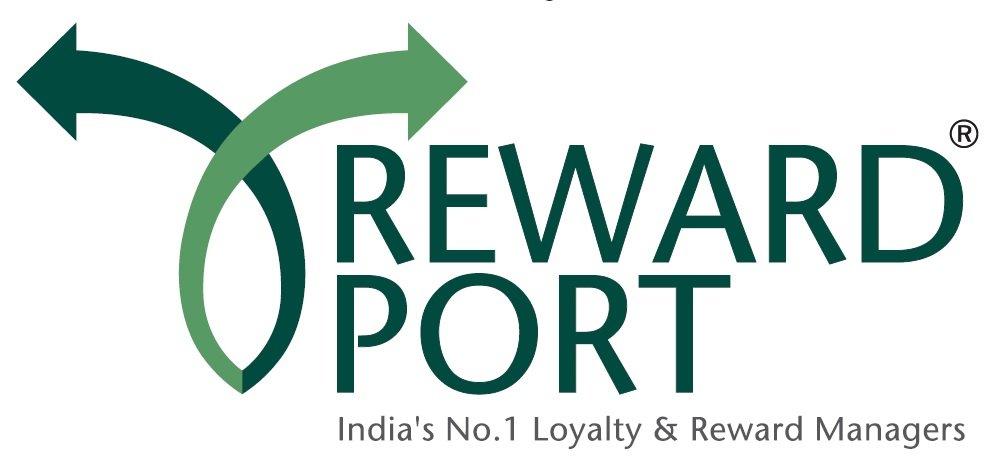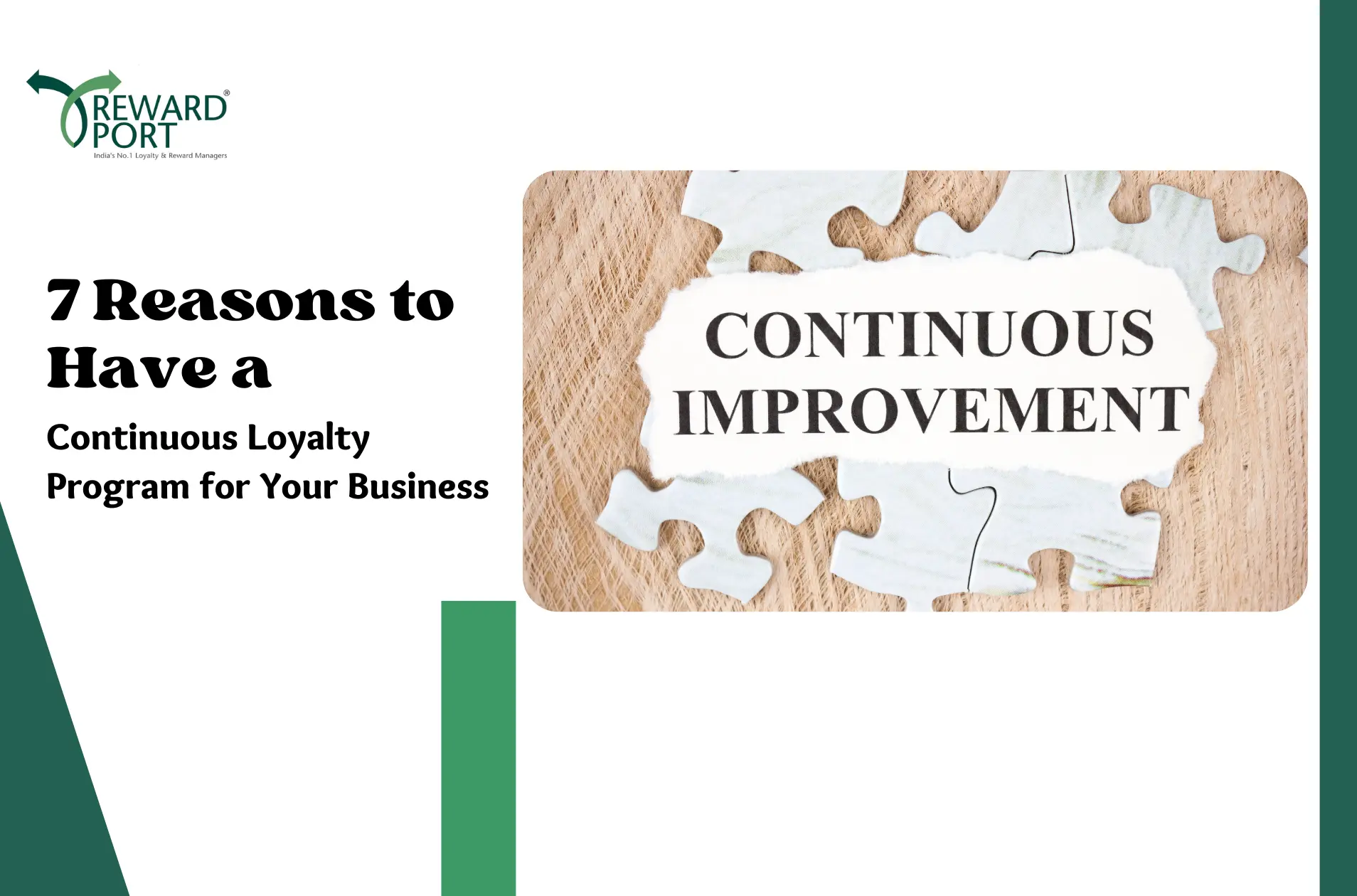
The most loyal customers of a brand are also its most profitable ones. Every business is building loyalty programs to turn its customers into brand loyalists. However, many of them misapply these reward programs. Common discount coupons and short-term loyalty campaigns are highly in trend to attract more and more customers.
Such an approach can bring one-time customers and encourage them to try your products/services. But they don’t add much value to your business. With a loyalty program, your focus should be more on retaining customers. The longer your relationship with your customers, the lower your need to spend on them.
What is a Loyalty Program?

A loyalty program is a well-structured strategy to encourage customers to stay loyal to a brand. Customers are incentivised to spend on a business. It makes them feel valued by the brand and motivates them to spend more on it. The more they spend, the more incentives they receive.
The incentives can be monetary or non-monetary. You just need to ensure that your loyalty program excites your target audience. Along with encouraging your existing customers to stay loyal, these programs increase your brand awareness and attract new customers.
Why a Continuous Loyalty Program?
Loyalty programs, if planned and implemented well, can be very effective in increasing the Customer Lifetime Value (CLV). Studies suggest that most customers consider themselves loyal to a brand only after spending at least five times on it.
With short-term discount offers or one-time reward programs, you can catch the attention of new customers. But there is no guarantee that these new customers will purchase your products again. They may only make a one-time purchase to avail of the discounts.
It is essential to keep your customers loyal for a long time to maximise profits with a loyalty program. Here are some advantages of having a continuous loyalty program for your business:

1. Build shared Values
Continuous and focused Loyalty Programs are valuable for your business and the customers. About 64% of consumers are loyal to the brands because of shared values. You can create community-based loyalty programs where people from different backgrounds feel like a single unit.
Sephora’s Beauty Insider Program is a good example here. Along with offering a wide range of gift options to redeem loyalty points, the platform creates an online community. All beauty enthusiasts can share their looks and ideas and learn from each other.
2. Customers Remain Invested in the Value
Loyalty Programs are not always about offering monetary rewards to your customers. You can encourage them to stay loyal even by making them feel valued. When you value your customers’ feedback, suggestions, and thoughts, they are more likely to stick to your brand.
The best way to retain your customers is to make them invest value in your business. You can ask your customers for feedback on your latest launch via social media or a short survey. Take their responsibilities seriously and work on them. Also, let your customers know that you value their feedback.
A great example of this is the ‘Spin the Wheel’ program by a gold investment app. Under this, you get a chance to spin the wheel every time you invest in Gold. You earn some money after spinning the wheel and after accumulating a certain amount, you can invest this money to buy more gold. RewardPort is India’s leading rewards company and can help you run relevant loyalty programs for your business.
3. Increase Trust
Studies on e-commerce platforms suggest that around 94% of overall purchases are of products with 4–5-star reviews. It shows how important it is for a business to win customers’ trust. You can get good reviews only if your existing customers are happy and trust your brand.
When you have a continuous customer loyalty program that rewards your customers for every purchase, your customers feel appreciated for their purchase. As a result, they trust your business and become loyal.
4. Differentiate Your Brand from Competitors
A unique and continuous loyalty program sets your brand apart from its competitors. While others offer one-time discounts or short-term loyalty programs to attract new customers, you can focus on retaining your customers by following the concept for more value to more profitable customers.
Such programs can help you beat the competition in the market. Even if some other brand is offering similar products at less expensive prices, customers are more likely to prefer your brand if it has a better loyalty program.
5. Builds Sentimental Value
With a unique loyalty program that builds shared values, you can make your customers feel emotionally connected to your brand. Customers that have sentimental values attached to a brand are more likely to stay loyal for a longer period. When you gain the trust of your customers, they automatically start feeling an emotional connection with your company.
6. Increase Referral Business
Loyalty programs also encourage word-of-mouth marketing of your business. With great rewards/incentives, you make your customers feel good about your brand. These happy customers become your brand advocates and refer your brand to their friends. It is a great way to expand your referral business without any additional cost.
7. Lower Loyalty Costs
When you have a continuous loyalty program for your business, your major focus is on retaining your existing customers. Customers become more loyal with every additional year of relationship and these loyal customers are less costly to serve. Customer acquisition is much more expensive than customer retention.
However, that doesn’t mean you are not going to attract more audience. The trust and loyalty of your existing customers towards your brand play a significant role in gaining new customers.
Types of Continuous Loyalty Programs

Loyalty Programs can be of different types. Different brands build different reward programs that align with their customers’ interests and business requirements. However, these programs are generally based on one of the following concepts:
1. Points-Based Programs:
These programs offer some sort of rewards/loyalty points on every purchase that a customer makes. After accumulating a certain number of points, these can be redeemed to get free-gifts, coupons, or vouchers. Sometimes these points can also be used to get a discount on the next purchase.
2. Cashback Programs
Under these loyalty programs, customers get cashback on every purchase. This cashback can be used against future purchases. For example, credit card companies offer cashback to their customers,’ which is automatically adjusted against their billing amount.
3. Subscription-Based Programs
Subscription-based programs require a fee to be paid from the customer’s end to earn rewards or incentives. Once a customer buys a subscription, he/she is more likely to stay loyal for a longer period.
4. Spend-Based Programs
These programs offer rewards/gifts/incentives to the customers after achieving a particular spend slab within a pre-specified time. This encourages customers to spend more in a shorter period.
5. Referral Programs
Referral Programs offer rewards, cashback, or other sorts of benefits to existing customers for every successful referral. Even the referred friend gets the benefit along with the existing customer.
How To Create a Loyalty Program for Your Business?

Creating a loyalty program for your business should not be a random process. It requires you to take the following steps carefully:
1. Know Your Audience:
To achieve your goals with a loyalty program, it is extremely important to understand your customers. Try to identify your most loyal customers and their interests.
You can do this using customer data, surveys, social media platforms, or by taking customer interviews. Make sure that your customers love what you are offering under your loyalty program.
2. Prepare a Plan
Decide what type of loyalty program you are going to build for your business. A points-based reward program is preferred by most businesses, but it might not be the best for your business as well. RewardPort can help you build a loyalty program that aligns with your business needs.
3. Set Different Tiers
To make your loyalty program different from the competitors, you can add different tiers to it. The more loyal a customer is, the higher benefits he/she gets. This encourages your customers to spend more to get promoted upper tiers and receive higher incentives.
4. Add Personalization
Adding a personal touch to your loyalty program helps you establish an emotional connection with your customers. You can do this by encouraging your customers to spend on the categories they are more interested in.
Apart from these steps, you must focus on building shared values and making your customers invest time or effort in your brand. Moreover, regular communication with your customers also plays an important role in customer loyalty.
Build A Consumer-Centric Loyalty Program
It is important to listen to your customers to provide them with the best experience and encourage loyalty among them. RewardPort helps you build a loyalty program that suits your business needs and provides the best customer satisfaction.
Being a top loyalty rewards company, RewardPort makes sure that you achieve your business objectives faster with the most suitable loyalty rewards programs. RewardPort equips you with the latest and most inexpensive rewards based on your audience. You can monitor and modify the campaigns as per their performance and customer feedback.
Frequently Asked Questions
How do I enrol in a loyalty program?
As a brand, you must build a loyalty program for your customers. Reward and loyalty solutions companies like RewardPort can help you create the best program for your business.
How can a loyalty program benefit a company's marketing efforts?
A well-structured loyalty program can reduce the marketing costs of a company to a great extent. Customers engaged with a loyalty program are more likely to respond to your advertisements and become brand advocates. It encourages word-of-mouth marketing, and your business reaches more audiences with less effort.
How can a company measure the success of its loyalty program marketing efforts?
Here are the top metrics to measure the success of a loyalty program:
Customer Enrolment Rate in the loyalty program
Participation or Engagement Rate
Rate of repeat purchases
Average spends per customer vs the return on investment
Customer lifetime value


